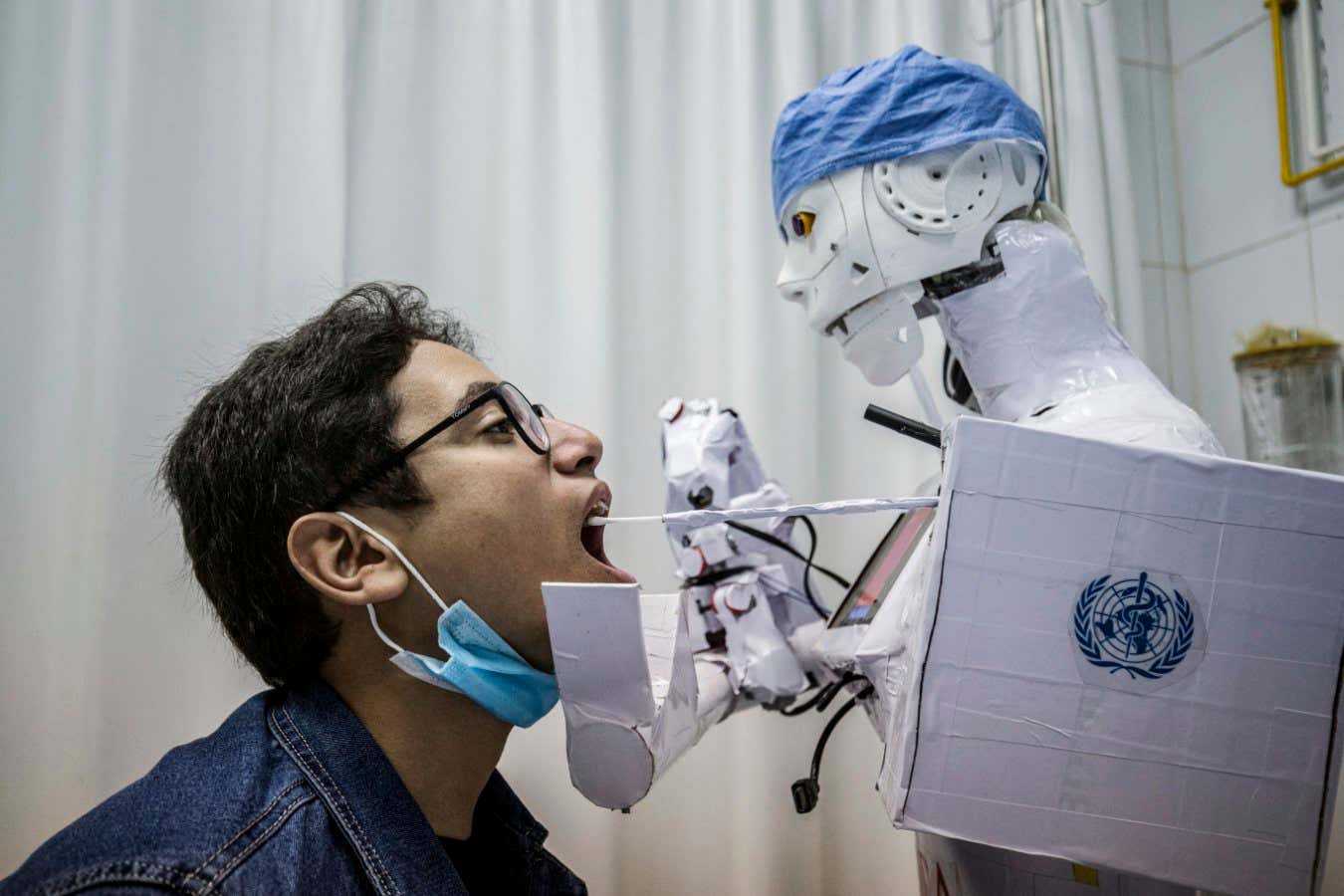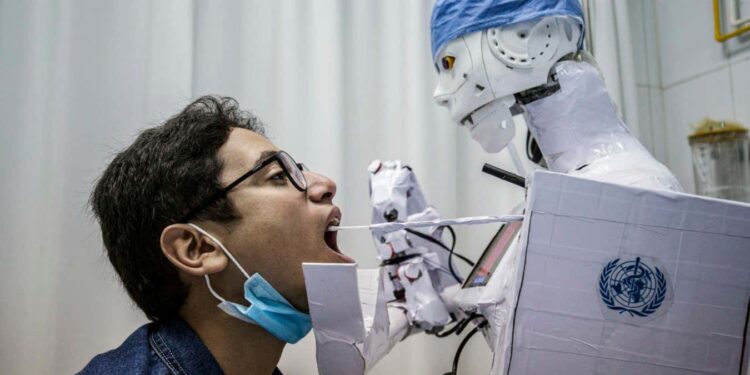
Will robots routinely take cheek swabs in the future – and if so, how soon will this happen?
KHALED DESOUKI/AFP via Getty Images
Hacking Humanity
Lara Lewington (W. H. Allen: UK, available now US, 14 October)
Smart toilets that track your gut health. Robotic pets that boost well-being. Mirrors that measure your blood pressure. It is hard to predict the future with any certainty, but, as a biomedical reporter, I was curious to read a book that envisions how fast-evolving technology could transform healthcare.
In Hacking Humanity: How technology can save your health, and your life, Lara Lewington draws on more than a decade of experience as a technology reporter at the BBC to cover an impressive array of innovations: from medical robots to lab-grown organs and genetic editing to treat certain conditions. “Let me show you the way to a future where we shall be hacking humanity,” she writes in the introduction.
What follows is a whistle-stop tour through the hottest developments in medical research, brought to life through first-hand accounts of Lewington enthusiastically trialling cutting-edge devices, being scanned and taking blood tests. She also meets the characters and companies pioneering such innovations, helping put a human face to tools that often rely on artificial intelligence.
But, as someone who reads health news every day, I found the start of the book somewhat underwhelming. Covering wearable devices that track things like your sleep, exercise and blood sugar levels, Lewington explains what seems obvious to me: we can now monitor our bodies like never before and analysing this data could help doctors treat us more effectively. I would have liked more detail on how wearables might actually be integrated at scale in under-resourced healthcare systems.
Subsequent sections were more interesting, such as a look at how innovations like 3D-printed organs are actually helping scientists develop new medicines. I also enjoyed a passage that covers blood tests and AI models that are enabling earlier detection and more personalised treatment of cancer. If you are less familiar with weight-loss drugs and anti-ageing research, Lewington also provides an engaging rundown of both.
As a self-professed “tech optimist”, Lewington presents a very upbeat view of the devices she encounters, often reeling off a series of impressive-sounding study results with relatively limited discussion of any caveats.
While this enthusiasm may be refreshing for some, I have seen countless supposedly “game-changing” technologies fail to deliver – and would have preferred a heavier dose of scepticism.
The book does end by acknowledging that the shiniest technologies are often only available to the richest. Lewington also stresses the need for tools to be tested on a more diverse range of people, including ethnic minority groups and women, who are often underrepresented in medical research.
However, I would have liked a more extensive discussion of how medical AI can worsen health inequalities and how we can avoid this, given how heavily this technology features throughout the book. Research has suggested that some wearable heart-rate trackers may work less well for people with darker skin. It would have been nice to have such cases woven between the promising results, along with expert opinion on how we can learn from them.
Overall, Hacking Humanity may be a good pick for someone who is looking for a quick summary of the most ambitious ideas at the forefront of medical innovation – but less so for those who are looking for a deeper, more critical analysis of where healthcare is heading.

New Scientist book club
Love reading? Come and join our friendly group of fellow book lovers. Every six weeks, we delve into an exciting new title, with members given free access to extracts from our books, articles from our authors and video interviews.
Topics:
Source link : https://www.newscientist.com/article/mg26735520-300-can-amazing-tech-reboot-healthcare-a-new-book-explores-the-future/?utm_campaign=RSS%7CNSNS&utm_source=NSNS&utm_medium=RSS&utm_content=home
Author :
Publish date : 2025-07-16 18:00:00
Copyright for syndicated content belongs to the linked Source.






